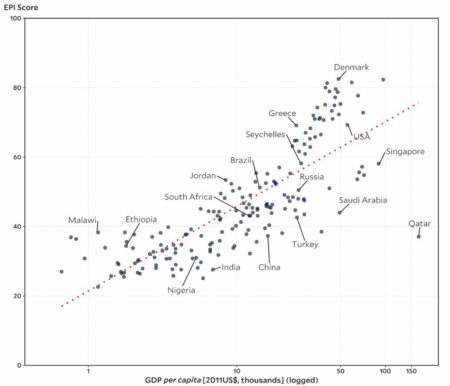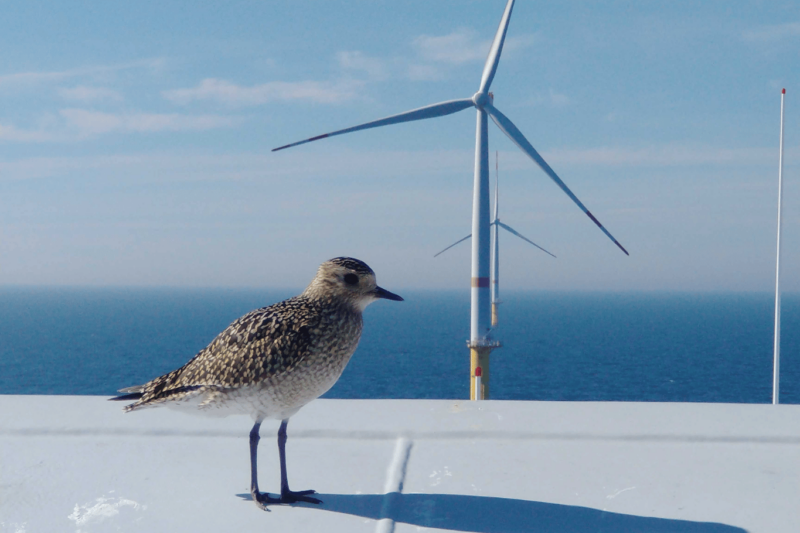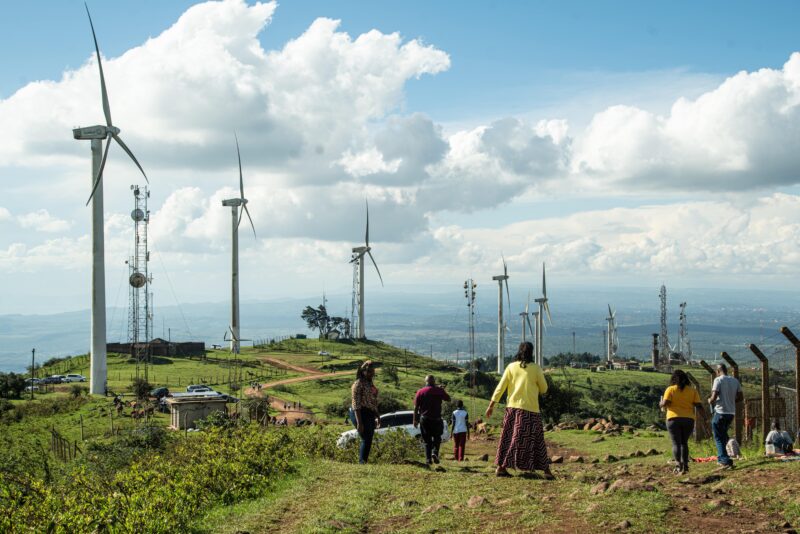News
Wind energy
District heating
Transport
+2
Denmark earns the top spot in global sustainability index


The EPI demonstrates Denmark’s leadership through a number of examples of the green transition. This includes facts such as Denmark’s reduction of CO2 emissions by more than half since peaking in 1996 and that 47 per cent of electricity was sourced from wind power in 2019. Researchers also emphasize current plans of at least tripling offshore wind capacity by 2030 through the construction of two energy islands with an initial capacity of 2GW each, and Denmark’s 70 per cent reduction target by 2030 enshrined in the new climate act.
Other nations in the top tier include Luxembourg, Switzerland, the United Kingdom, and France.
“The fact that Denmark is now number one on an index as celebrated and influential as the EPI is a testament to the fact that even a small country is capable of great change. We want to be a global source of inspiration and hopefully influence others to follow the same path we have taken. I am pleased to see that the experts also highlight our recent commitment to reduce emissions by 70 per cent by 2030,” said the Danish Minister for Climate, Energy and Utilities, Dan Jørgensen.
- Related news: Green energy islands, renovated buildings and climate-neutral waste: Danish government has a new climate action plan
Denmark excels in almost every indicator of environmental health, having long made significant commitments to air quality, advanced sanitation, and safe drinking water. The highest-ranked country also stands out in solid waste management, with virtually all of the nation’s waste being recycled, composted, or incinerated.
“I am proud of the recognition of the Danish achievements within environment and climate. For many years we have set ambitious long lasting targets for environment. Even though Denmark ranks high on the index as a global leader, I believe that it is essential to stress that we are presently in an ecological crisis and the crisis is global. Production, consumption and sourcing has negative consequences outside national borders. And we are all affected by climate change and the loss of biodiversity. The Danish government is therefore significantly raising the ambitions for climate, environment and biodiversity, and we hope to do it together with the rest of Europe and globally,” said Minister for Environment, Lea Wermelin.
“Denmark’s #1 position in the 2020 Environmental Performance Index reflects high-level focus and carefully conceived Government policies on the full spectrum of sustainability challenges with particular effort centered on delivering deep decarbonisation. We hope other nations across the world will take inspiration from Denmark’s leadership,” said Daniel Esty, Director at Yale Center for Environmental Law and Policy.
"Our analysis suggests that countries with broad-based sustainability efforts and particular emphasis on decarbonising their economies come out at the top of the pack"
- Daniel Esty, Director of the Yale Center for Environmental Law & Policy
Denmark made the leap from 3rd in the previous iteration of the EPI in a rather bleak context as the 2020 EPI reveals that progress on mitigating climate change globally is not progressing nearly fast enough to meet the collective goals of the Paris Agreement.
“The ranking is by no means a reason to rest on our laurels. On the contrary, we feel compelled to keep working hard. This is not a competition and we want to use our privileged position to inspire others, engage in the global debate, and show green leadership,” said the Danish Minister for Climate, Energy and Utilities, Dan Jørgensen.
[caption id="attachment_112127" align="alignnone" width="527"]
- Related news: CO2 emissions dropped by 6 per cent in 2019 as Denmark has lowest coal consumption in 50 years
Extract from Climate Chapter in EPI report:
”Denmark leads the world on climate change action, having reduced its CO2 emissions by more than half since peaking in 1996 (World Bank, 2019). Denmark’s capital city of Copenhagen has slashed emissions through investment in wind energy and biomass, adoption of district heating and cooling systems, and expansion of bike lanes to the point that there are now more bicycles on the streets than cars (Cathcart-Keays, 2016; Taylor, 2018). The city aims to become the first carbon-neutral capital by 2025. Denmark sourced 47 per cent of its electricity from wind power in 2019 (Gronholt-Pedersen, 2020), and recently announced a plan to at least triple its offshore wind capacity by 2030 through the construction of two 2GW “energy islands” (Hook, 2020). The project could eventually expand to 12GW, exporting excess energy to neighboring countries. The “islands” represent a central part of the country’s plan to implement a groundbreaking new climate law which aims for 70 per cent emission reductions by 2030 and net zero by 2050. The legislation requires the government to set binding emission targets for each sector of the economy every five years, and could serve as a model pathway for other developed nations (de Bellefonds, 2020).”
Facts
The EPI is a biennial environmental scorecard produced by researchers at Yale and Colombia universities that ranks 180 countries on 32 sustainability criteria across 11 categories, based on historical data. The primary objective of the index is to enable a detailed comparison to be able to evaluate which measures have the most effect.
Sources
You should consider reading
solutions
Combined heat and power production
+6















